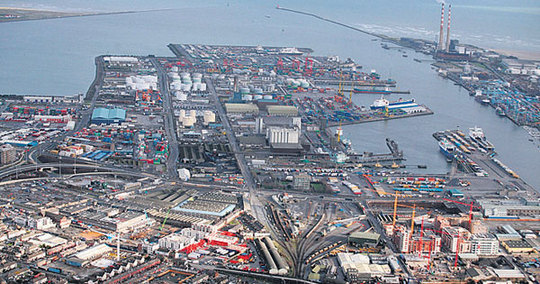London and Tokyo saw it happen in 2024; Berlin and Canberra will see it happen in early 2025.
The post-pandemic landscape has seen incumbent governments across the world suffer the wrath of the voter as frustrations over the cost of living crisis and what the recently-departed Jimmy Carter dubbed a “crisis of confidence” boiled over.
Dublin was the exception.
In November, the centre held and Fianna Fáil and Fine Gael were rewarded with another term in government, bucking the trend in the process.
Simon Harris called the election with the intent of having a new government in place for when the second Trump administration takes office, but even that now looks unlikely (surely not an omen for how they will govern – National Children’s Hospital, Metrolink, what’s that?)
Across the world, the incumbent government (be they left or right) were turfed out by voters at the polling booth, but the centre held firm.
As Fianna Fáil and Fine Gael continue to hash out who gets what ministry and who gets to be Taoiseach first, the cold January will be a time of reflection for Ireland’s opposition.
2025 will be a year of global turbulence and incumbent parties are now gearing up for another battering as global economic headwinds pick up the pace.
Germany’s governing coalition of SPD (Labour’s German cousins) the FDP (the Progressive Democrats after really getting into Diary Of A CEO) and the Greens (take a mad guess) looks set to collapse, France’s political gridlock shows no signs of abating and Trump’s free jazz economic policies now look set to cause major economic anxiety globally.
Ireland being caught of the middle of the whims of an American president who is using the word “tariffs” the same way an enthaustic middle manager uses the word “holistic” and a European Union seemingly being dragged in all directions makes Mícheal Martin’s in-tray that much more precarious.
While Fianna Fáil and Fine Gael’s election victory last November wasn’t the same as Labour’s “loveless landslide” in the UK last summer, both governing coalitions look set to face the same problems in 2025.
While it is not likely that Ireland is due to suffer a 2008-style crash, the warning signs are there.
The revelation that Ireland has only been kept out of a recession by virtue of boosted corporate tax takes (a decision that Ireland fought tooth and nail at the time as part of the EU bloc but was overruled by Biden, Merkel and Johnson at 2021’s G20 summit) shows how precarious Ireland’s economy is.
At the 2021 G20 summit, the world’s major economies agreed to a minimum global corporate tax rate of 15% for big businesses – above Ireland’s traditional 12.5%.
That extra 2.5% in corporate tax revenue has single-handedly kept Ireland out of recession while the rest of Europe struggles along.
However, Trump will likely strongarm like-minded allies in major global economies to cut corporate tax rates could show just how much Ireland’s economy is built on sand.
The head of Germany’s next government is almost certainly going to be Friedrich Merz, the man who failed to beat Angela Merkel in a leadership contest in 2002 and he will follow Merkel’s line of cutting spending (and taxes) at all costs.
Canada’s presumed next Prime Minister, Pierre Poilievre is a staunch economic conservative and France’s next government is likely to march to the beat of Marine Le Pen’s drum as warnings of needed budget deficit cuts from the EU will go unheeded.
In the likely event that Ireland’s economy formally enters recession, the dreaded a-word might make a reappearance on these pages and on news bulletins.
Fianna Fáil and Fine Gael don’t need to be told how unpopular austerity measures are; both parties have been forced into coalition with each other because Sinn Féin suddenly became a major political force off the back of anti-austerity movements in the 2010s.
Should the global economy sink over the course of the next government with Fianna Fáil and Fine Gael at the helm, this could be the opportunity for the opposition to
Despite legacy media outlets wanting to will it into existence as a major issue, immigration wasn’t as big an issue as they would have liked it to be according to November’s general election.
It was the bank account that won it – the “how much is a litre of milk” question.
Sinn Féin failed to provide any meaningful answer to this, while Fianna Fáil and Fine Gael provided a tepid “ah sure yeah, do you want a tax cut” answer which seemed to work.
Indeed, the noticeable gains made by the left of centre – parties who offered tangible ways out of the cost of living crisis and October’s budget was designed as a response to the support gained by them – are likely to inform how the new government governs over the next few years.
Economic populism proved to be a winning issue in the US last November, it will be a winning issue in Germany next month; it may end up being a winning issue in Ireland in the not too distant future.
